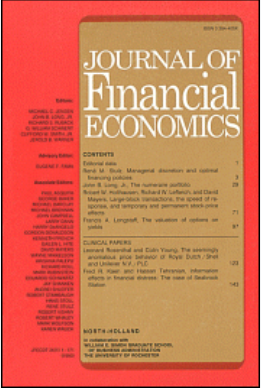集体谈判的弹性
IF 10.4
1区 经济学
Q1 BUSINESS, FINANCE
引用次数: 0
摘要
议价理论文献的一个中心发现是,当事人对延迟的态度影响议价结果。然而,忍受延迟的能力,弹性,通常是私人信息,在大多数现实环境中很难衡量。在集体谈判的背景下,我们显示公司积极尝试在预期的劳资谈判中变得财务弹性。企业调整其财务弹性以应对工作权利法(RWLs)的通过。工会的财务结构也会对RWLs做出反应。我们的发现表明,弹性是理解集体谈判决定工资的过程的关键。本文章由计算机程序翻译,如有差异,请以英文原文为准。
Resilience in collective bargaining
A central finding of the theoretical literature on bargaining is that parties’ attitudes towards delay influence bargaining outcomes. However, the ability to endure delays, resilience, is often private information and hard to measure in most real-world contexts. In the context of collective bargaining, we show firms actively attempt to become financially resilient in anticipation of labor negotiations. Firms adjust their financial resilience to respond to the passage of right-to-work laws (RWLs). Unions’ financial structure also responds to RWLs. Our findings suggest resilience is key to understanding the process through which collective bargaining determines wages.
求助全文
通过发布文献求助,成功后即可免费获取论文全文。
去求助
来源期刊

Journal of Financial Economics
Multiple-
CiteScore
15.80
自引率
4.50%
发文量
192
审稿时长
37 days
期刊介绍:
The Journal of Financial Economics provides a specialized forum for the publication of research in the area of financial economics and the theory of the firm, placing primary emphasis on the highest quality analytical, empirical, and clinical contributions in the following major areas: capital markets, financial institutions, corporate finance, corporate governance, and the economics of organizations.
 求助内容:
求助内容: 应助结果提醒方式:
应助结果提醒方式:


